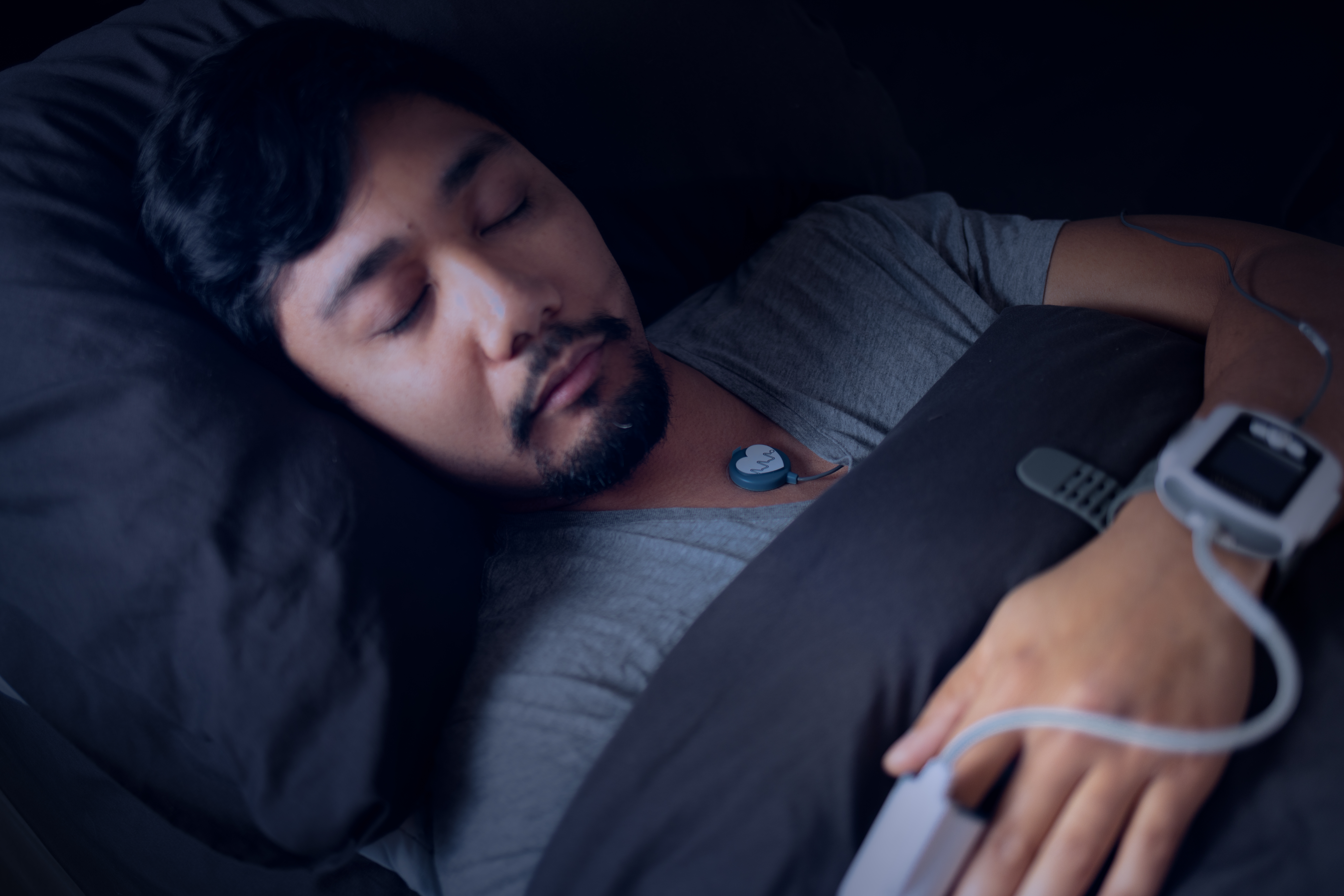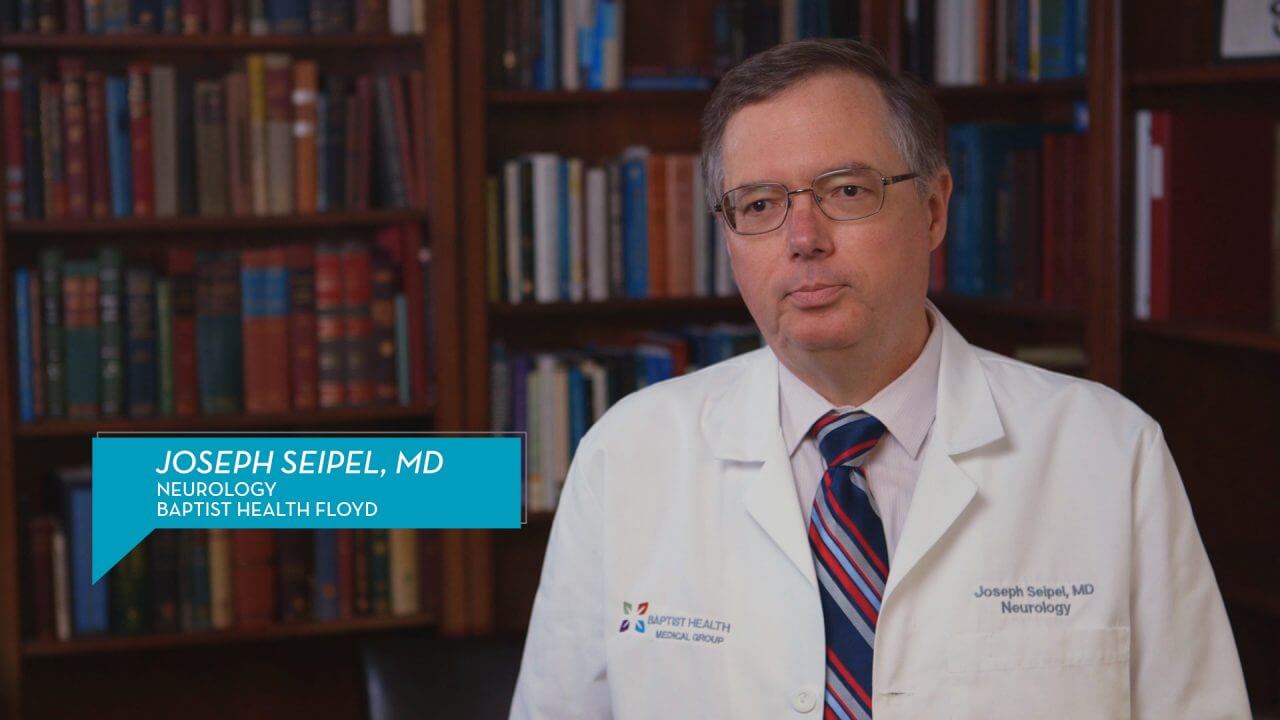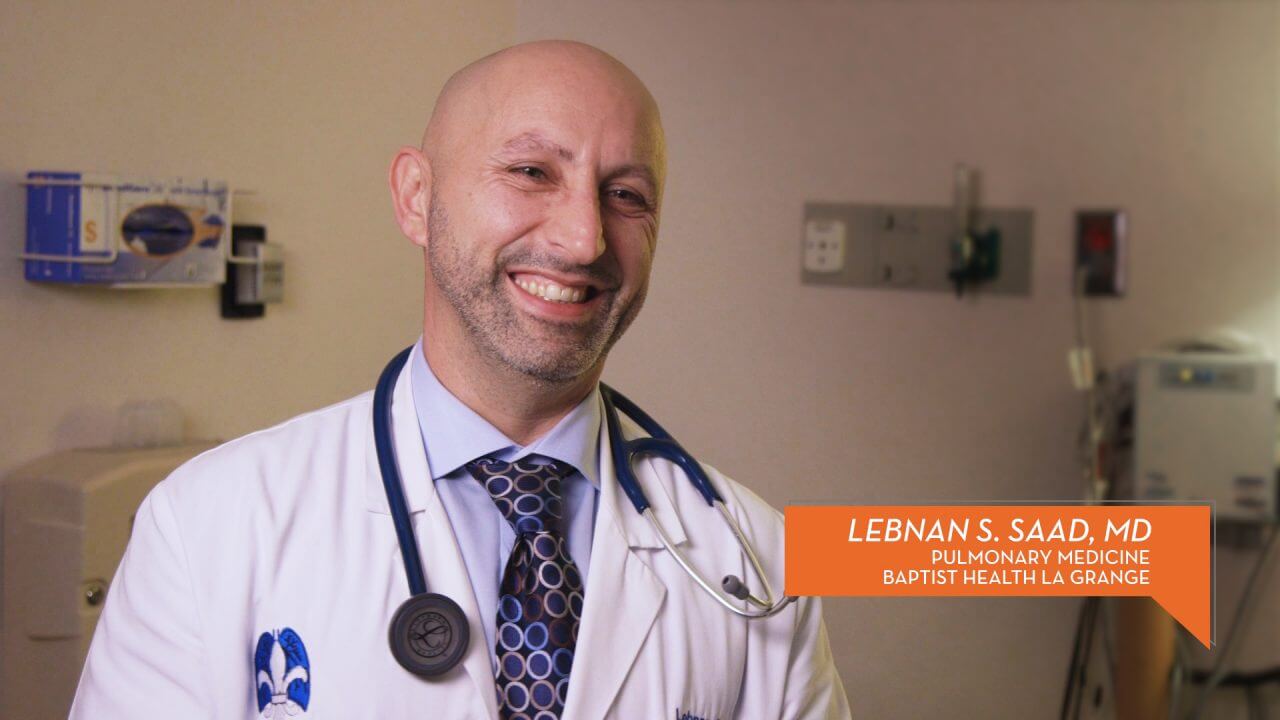Diagnosing Sleep Apnea in Elizabethtown, KY
Baptist Health Hardin: Diagnosing Sleep Apnea with a Sleep Study
Diagnosing sleep apnea early with sleep studies helps improve well-being, energy and high-risk factors. Learn about sleep apnea treatment from Baptist Health.
Diagnosing Sleep Apnea in Elizabethtown, KY, HealthTalks Transcript
Rajanna Ramaswamy, MD, Pulmonology:
Sleep disorders consist of sleep apnea mainly, and also insomnia and hypersomnia. Sleep apnea is the most common diagnosis of all the consultations we see [in] patients who come here for evaluation.
If the patient has symptoms of snoring, tiredness, if somebody says that you stop breathing and wake up choking, gasping for breath, and it’s difficult to control hypertension, then you should be evaluated for a sleep test. If a patient thinks they have symptoms of sleep apnea, contact their primary care provider to send the patient for a sleep study.
When we do the consultation, we determine the patient’s risk. If the patient is high risk and has a comorbidity like heart failure or COPD, we do an in-lab test. Otherwise, they qualify for a home sleep test. [With] the in-lab test, a patient has to stay one full night here. We do the diagnostic studies and also we do the titration study, where the patient qualifies for a split night. Once the patients are treated for sleep apnea with the CPAP or a BiPAP, they come back and say, “I feel more energetic and I’m not sleepy and I’m not as tired as before.” It’s a life-changing event, and they can feel the difference.
Next Steps and Useful Resources
Find a Provider
Understanding Sleep Apnea
What Happens with Untreated Sleep Apnea?
Understanding Insomnia: Causes and Coping
What are the Different Types of Insomnia?



